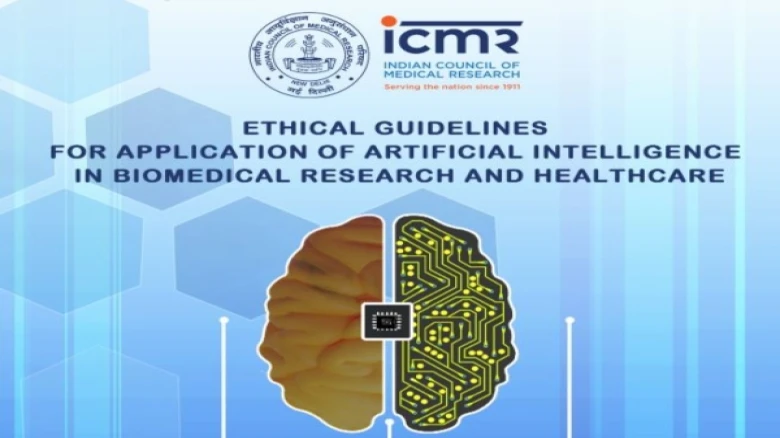The guidelines are intended to help with the development, deployment, and adoption of AI-based solutions that benefit...
Digital Desk: On Friday, the Indian Council of Medical Research's (ICMR) Artificial Intelligence division and the Department of Health Research announced the first Ethical Guidelines for the Use of Artificial Intelligence in Biomedical Research and Healthcare (March 24).
The recommendations aim to create "an ethics framework that can assist in the development, deployment, and adoption of AI-based solutions that benefit all stakeholders."
According to Dr. Rajiv Bahl, Secretary to the Government of India, Department of Health Research and Director General (ICMR), AI technology is increasingly being used in healthcare in India. Yet, being a data-driven technology, AI poses several possible ethical concerns, such as algorithmic transparency and explainability, clarity on culpability, accountability and oversight, bias and discrimination.
Based on the study, AI is quickly advancing and has made major inroads into practically every element of human existence, including healthcare.
The adoption of AI-based tools and approaches is predicted to improve healthcare delivery by making healthcare more accessible and inexpensive while also enhancing care quality.
"Computed Tomography (CT) scans, for the fact, can be read automatically by AI as well as radiologists. AI can screen for tuberculosis using chest X-rays with equivalent accuracy to molecular testing, and mammography scans can be used to forecast the beginning of breast cancer before visible indicators arise. As a result, both researchers and governments have identified AI for health as a critical field "as per the guidelines.
Aside from that, AI-based technologies can improve known techniques of illness screening and diagnosis, improve diagnostic accuracy, guide evidence-based treatment algorithms, forecast outcomes, and detect health system deficiencies, with an overall influence on human health and wellness.
Experts and ethics committees will apply the rules for considering research proposals involving the use of AI-based tools and technology.
Reportedly, as said by Dr. Narendra Kumar Arora, Executive Director of The INCLEN Trust International, AI and machine learning (ML) are game changers in healthcare.
"The key goal for such systems should be to make the AI-assisted platforms available for the benefit of the broadest segment of the general public with the greatest safety and precision possible," says Dr. Arora.

Leave A Comment